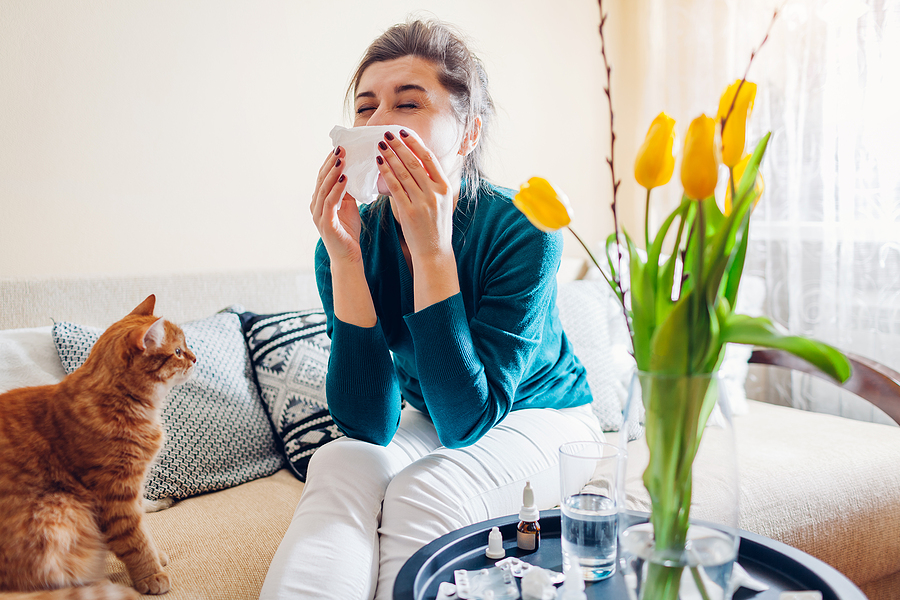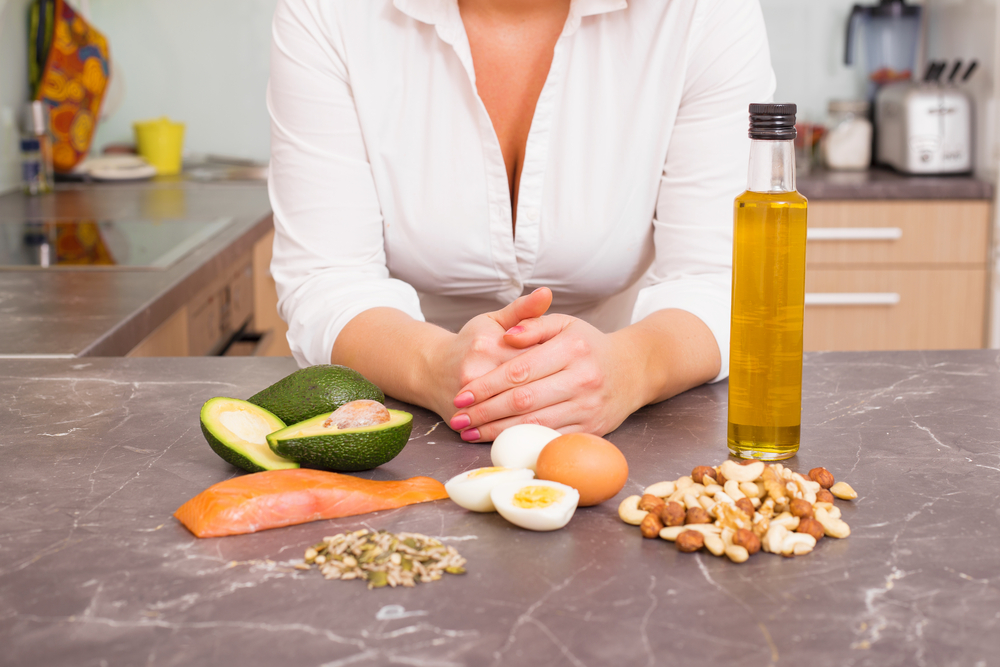Updated 03/24/2021
The more we understand about the impact of inflammation on our bodies, the more we understand how critical it is to reduce inflammation as much as possible.
The best case scenario, of course, is to prevent inflammation from becoming chronic in the first place. But we sometimes have a lifetime of bad habits to reverse, and it’s not as simple as it may seem.
Let’s talk about how the inflammatory process can go awry, leading to chronic information. Then I’ll give you vital information on how to reduce this inflammatory response through natural, anti-inflammatory, healthy habits.
There’s a lot of information here, so remember that you can begin to reduce inflammation in small ways that feel right for your lifestyle.
There are plenty of options and strategies to reduce inflammation, but you shouldn’t overwhelm yourself by trying to do them all at once. Choose one or two to start with, and build from there as you feel able.
What is inflammation?
Inflammation is your body’s natural response to injury or infection. It’s an essential component in healthy healing.
When trauma, burn, bacteria or other toxins damage cells, inflammation occurs. This is a process that sends immune cells and essential nutrients to the damaged areas, creating swelling that protects the area from further damage. The pain, swelling, and pus that you may see at the site of a wound or trauma is evidence that the inflammatory process is working as it should.
Unfortunately, some conditions, called autoimmune diseases, trigger inflammation when there is no cause. Your immune system erroneously thinks healthy tissue is damaged – and the resulting inflammation can actually cause damage rather than protect these tissues.
There are several types of inflammation, and it can be either acute (short-term) or chronic (long-term). Acute inflammation subsides when the problem has been dealt with, usually in a few hours to a few days.
Chronic inflammation, on the other hand, is present for months, or even years, despite the threat being gone.
The immune response is designed to be a reaction to an immediate concern, and inflammation should only be present when there’s a real threat to the tissues.
When chronic inflammation occurs, major health problems can result, including cancer, diabetes, asthma, heart disease, Alzheimer’s disease, and some forms of arthritis.
There are several risk factors for developing chronic inflammation, including age, diet, obesity, smoking, stress, sleep disorders, and imbalanced hormones.
Signs that you may be dealing with chronic inflammation include:
- Body pain
- Fatigue
- Insomnia
- Depression, anxiety or other mood disorders
- GI difficulty, such as diarrhea, constipation, and acid reflux
- Weight gain
- Frequent infections
Strategies to Reduce Inflammation in Your Body
Adopt an anti-inflammatory diet
Diet is one of the best natural ways to promote good health. When it comes to inflammation, there are some specific dietary recommendations to consider.
- Add essential fatty acids to your diet: Take a daily EFA fish oil supplement high in omega-3s to balance out your diet. Many are derived from fish oil, but vegetarian sources are also available. Just be sure your EFA supplement has been tested and proven free of mercury and other heavy metals — otherwise it can do you more harm than good. Some practitioners also recommend adding an omega-6 supplement called gamma linolenic acid, or GLA, if you have rheumatoid arthritis. These essential fatty acids restore the right amount of arachidonic acid in your blood. Walnuts, flaxseed, and other nuts are good sources of omega-3s, so add a small handful to your daily menu. Use olive oil liberally. It’s high in oleic acid, an omega-9, and has significant anti-inflammatory properties.
- Avoid refined sugar and carbohydrates with a high glycemic load, as well as processed and convenience foods as much as possible. Trans fats, sugar, refined carbohydrates, gluten and many other additives and preservatives present in these foods make them especially difficult for your system to process. Steer clear of known allergens and be aware of increasing food sensitivities. Wheat, eggs, dairy, soy and nuts are the most common dietary irritants. I recommend that you follow an elimination diet (avoiding a substance for two weeks, then introducing it for a day or two) to identify your sensitivities.
- Load up on fruits, vegetables and wild seafood/fish. A plate filled with colorful variety is the healthiest option. Fish offers many health benefits, but many species have astronomically high levels of mercury and PCBs, which is why I recommend seriously limiting all Atlantic varieties, and only eat wild Pacific or Alaskan salmon (never farm-raised!). The lower on the food chain the better, so sardines, anchovies and shellfish are still good choices. Add a portion of vegetables to every meal and snacks for their fiber and natural anti-inflammatory compounds. Many herbs (like oregano) and foods like garlic, green tea, blueberries, and ginger contain flavonoids and polyphenols that limit free radical production.
Add anti-inflammatory natural supplements to your routine
Modern agricultural practices mean our food supply – even fresh vegetables and fruit – has far fewer nutrients than it used to. To combat chronic inflammation, consider trying the following:
- A high-quality daily multivitamin: Vitamin E lowers levels of CRP in the blood. Vitamin D also has an anti-inflammatory effect. Vitamins C and the B vitamins are powerful agents against free radicals. Supplementing your diet with a good multivitamin ensures you get the right level of nutrients when your body needs them most.
- Specific supplements for joint inflammation like glucosamine, sulfur, and chondroitin. When dealing with chronic inflammation that impacts your joints, discuss these options with your health care practitioner. Because these supplements primarily delay progression and alleviate symptoms of joint inflammation, they won’t necessarily impact the underlying causes of inflammation.
- Herbal support. A wide range of herbs also have a positive impact on reducing inflammation, including Boswellia, ginger, turmeric, and more. These herbs seem to impact cell-signals to inhibit joint inflammation.
Natural anti-inflammatory activities
Move your body every day. Exercise provides your body with a flood of anti-inflammatory agents, so it’s an important part of reducing inflammation. If you haven’t been moving much, start slowly. A walk around the block or up and down a flight of stairs may not seem like much, but the more you do, the more stamina you’ll build. Try to work up to 20-30 minutes of some type of activity at least five times per week. Exercise also relieves stress, which can contribute to chronic inflammation. Yoga or Pilates combined with deep breathing techniques are a perfect place to begin.
Give yourself permission to meet your own needs. Do you need to get out and do something fun? Or say no, and stay home? Whatever it is you need, it’s okay to allow it! Whatever allows you to release stress and relax is essential in finding healing. Meditation or biofeedback therapy can help you learn to relax.
Release emotional baggage. We all have emotional burdens, but you don’t have to carry them alone. Explore talk therapy or find a support group to help you share the load. When you find a tribe of people willing to listen and support you, you’ll begin to see that holding on to old hurts isn’t doing your body any good.
Strive for plenty of sleep. When you sleep for seven to nine hours a night, you allow your body to heal from the ongoing demands of daily life. A good night’s sleep is great anti-inflammatory medicine without the need for pharmaceuticals! Set yourself up for success by having a comfortable sleeping environment free from outside distractions.
Reducing the root causes of inflammation
Addressing the inflammation itself with the above steps is a good start, but to truly reduce or eliminate chronic inflammation, you have to also address whatever is causing the inflammatory response to kick into action.
Eliminate harmful habits
It probably comes as no surprise that substances like caffeine, alcohol, nicotine or marijuana don’t do your system any favors. Moderation is critical if you can’t eliminate consumption altogether. When you stop smoking and using stimulants, inflammation subsides quickly. If you can’t quit on your own, find a support group or professional help. Don’t give up on yourself! When you succeed, you’ll probably feel so good you’ll wonder what took you so long!
“Go green” whenever possible
Our bodies are assaulted by environmental toxins constantly – but there is something you can do about it! Reduce use of dry cleaning, air fresheners, and anything with artificial fragrances. Seek out natural detergents, cleaning supplies, and beauty products. Test your air and water, and filter if necessary. Houseplants help filter the air naturally. Don’t put up with a “sick” work environment – call OSHA at 1-800-321-6742 or visit their website, www.osha.gov to see if there is something you can do about it.
Consider a gentle detox or cleansing program a couple of times a year. There’s no way to avoid environmental toxin exposure entirely. You can support your body’s natural detoxification process periodically to rid your body of these toxins naturally. Try my two-week quick cleanse for a gentle, natural detoxification process.
Don’t dismiss alternative therapies
I’ve heard from so many patients who have tried everything conventional medicine has to offer with no success but found relief through alternative treatments. When dealing with chronic pain and inflammation, it’s important to use anti-inflammatory drugs as sparingly as possible – and only for short periods of time. For long term relief, I recommend trying acupuncture, massage, water therapy or mind-body techniques to reduce pain and inflammation naturally.
Self-care is essential for reducing inflammation
When you ignore your own needs, inflammation often rears its ugly head to remind you that you must take care of yourself. Self-care isn’t selfish! Inflammation can quickly spiral out of control, making it difficult to simply carry out the tasks of daily living – never mind enjoy life!
Much like the hormonal balance I talk so often about, reducing inflammation is absolutely essential to good overall health. Your immune response is supposed to protect you, not leave you exhausted or in pain! If you take notice when the first signs of inflammation appear, you’ll often be able to avoid debilitating conditions that rob you of your natural joy.
Caring for your own needs first allows you to continue caring for others. You deserve a pain-free life filled with vitality and joy!
Resources:







